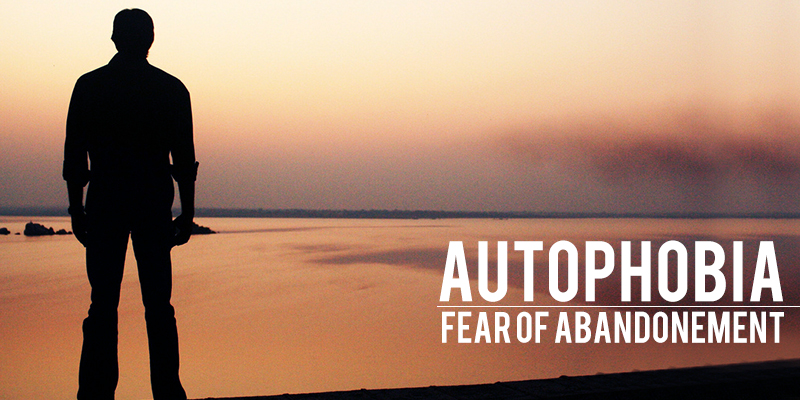Have you lately been distressed about getting left out by your loved ones, even when they’re sticking around you? If you’ve been extremely scared of being alone and getting abandoned by your beloved ones, you might be having Autophobia.

Autophobia has been derived from Greek word “Auto” meaning self. Autophobia is signified by an abnormal fear that one would be left with oneself only, and get deserted. An autophobic person is terrorized with the feeling and thoughts of being lonely. He/she becomes obsessive and clingy towards their near ones, and lives in constant worry. This kind of fear of abandonment is more common in children and early teenagers. The phobia can also result in severe cases where the person becomes abusive and violent towards his/her loved ones due to the blunder thoughts of being neglected. Autophobia is also closely related to Separation anxiety disorder (SAD) and Borderline personality disorders.
What Causes Autophobia?
Different causes that might be responsible for Autophobia in people are
A traumatic Event
Autophobia can be relevant to a previous traumatic event faced by the person. The fear can be resultant of distressful incidents in childhood such as divorce of parents, kidnapping and abuse or loss of a parent. Such trauma can instill the fear of getting left out alone, and thoughts that every important person if his/her life may leave. This can also be the result of witnessing someone else go through similar trauma of being left.
Autophobia may also suddenly erupt with someone who never had any childhood related trauma. Any sudden trauma related to loss or separation from a significant one may also trigger the abnormal fear of being lonely.
Inherited Personality
People are more vulnerable to Autophobia if they’ve got inherited personality traits of adrenaline deficiency, general anxiety and fear. Their mind is weakened by the anxious feelings within, and any small event may also trigger the phobia.
The Symptoms of Autophobia
Major symptoms that indicate that one might have Autophobia (both in children and adults) are:
- Extremely scared of being alone and lonely
- Uncontrollable and irrational thoughts of getting abandoned by loved and near ones
- Unreasonable anger and irritability
- Irrelevant jealousy and distress
- Not letting one’s child or a loved one form friendly or professional association with anyone else
- Clingy and sticky behavior with a loved one
- Feeling depressed for no logical explanation
- Panic attacks with signs such as shaking, profuse breathing, racing heartbeat, chest pain, nausea or vomiting, dizziness or fainting, muscle tension, sweating and abdominal uneasiness
When to Visit a Doctor?
Autophobia can take a severe form as the person may become extremely doubtful of a significant other, and become abusive. It can also lead to serious depression and disturb the everyday life of the person. If the above symptoms have occurred for a long time period time, exceeding six months time and negatively affected one’s everyday tasks, visiting a doctor is necessary.
How Is It Treated?
Different psychotherapies and medications are helpful in eliminating the symptoms of Autophobia. Some of these are
Cognitive Behavioral therapy (CBT)
For Autophobia, CBT includes the major treatment part. CBT is a psychotherapy which helps to identify the latent thoughts, perceptions and images associated with the anxiety. The therapist conducts counseling sessions and gives a platform for the person to share about the phobia. Moreover, the therapist teaches and guides the person to have positive behavior, and learning to tolerate. In many cases, the person can have numerous doubts about his/her loved ones. For such cases, the therapist also makes aware of what’s real and how he/she should approach to talk about it with that significant other.
In severe cases, hypnotherapy may also be used alongside CBT. Hypnosis helps to conduct in-depth analysis if the thoughts of a person. The therapist is able to recognize the hidden thoughts, desires and fear related with the phobia. This helps in making the treatment effective.
Medicines
Medications may be used alongside therapies. Autophobic person is very much vulnerable to depression and thoughts of harming someone else or oneself. In such circumstances, anti-anxiety and anti-depressant drugs can be prescribed by the doctor to control the anxiety.